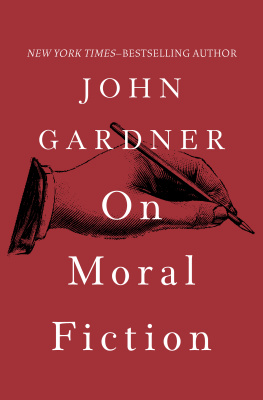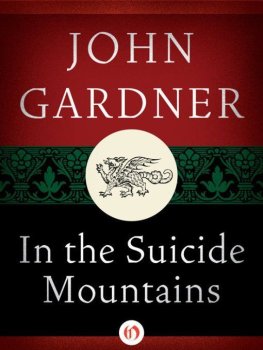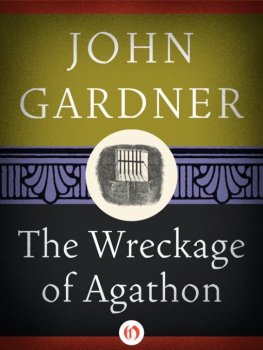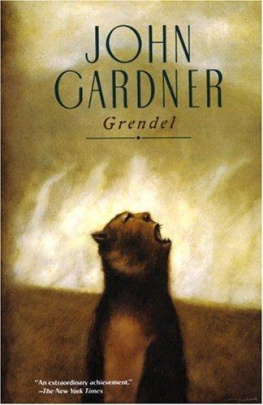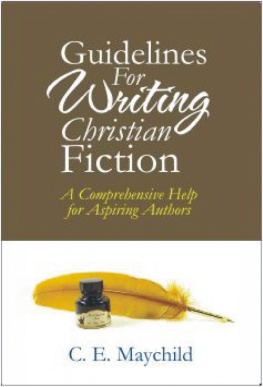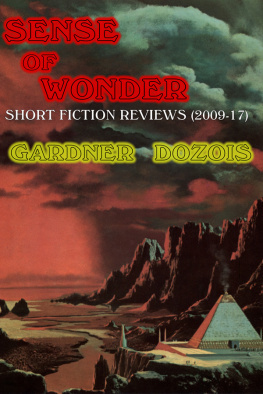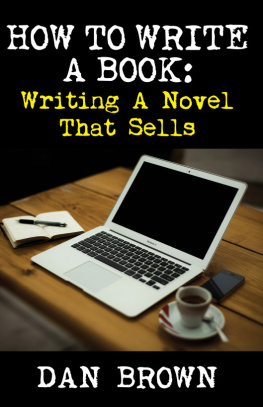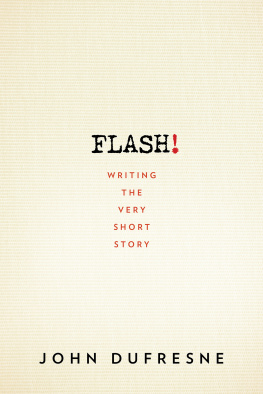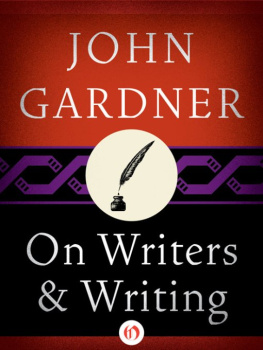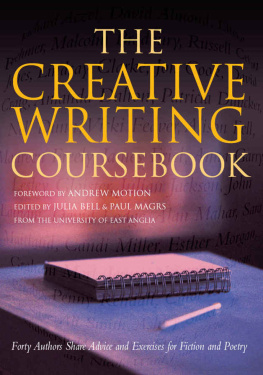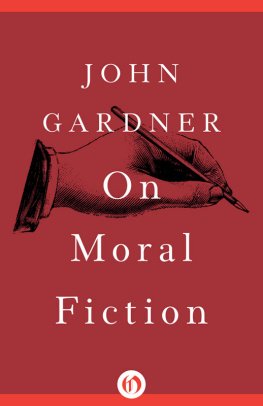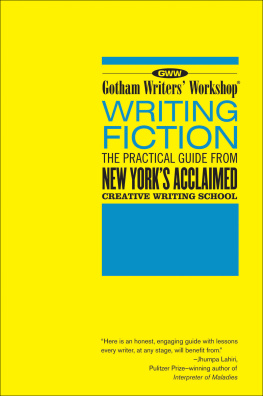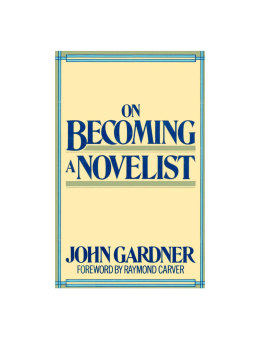John Gardners Collection on Writing
On Becoming a Novelist, On Writers & Writing, and On Moral Fiction
John Gardner

On Becoming a Novelist
John Gardner

CONTENTS
ACKNOWLEDGMENTS
Some of the plot ideas examined in this book came out of writers workshop discussions at SUNYBinghamton.
PREFACE
I assume that anyone looking at this preface to see whether or not it would perhaps be worthwhile to buy this book, or take it from the library, or steal it (dont), is doing so for one of two reasons. Either the reader is a beginning novelist who wants to know whether the book is likely to be helpful, or else the reader is a writing teacher hoping to figure out without too much wasted effort what kind of rip-off is being aimed this time at that favorite target of self-help fleecers. Its true that most books for beginning writers are not very good, even those written with the best of intentions, and no doubt this one, like others, will have its faults. Let me set down here how and why Ive written it, and what I try to do.
After twenty-some years of giving readings and public lectures, along with making frequent visits to classes in creative writing, I have learned what questions to expect in the inevitable question-and-answer periodsome questions at first glance merely polite (Do you write with a pencil, a pen, or a typewriter?); some professorial and freighted with vested interest (Do you think its important that the would-be novelist read widely in the classics?); and some timid and serious, presented as if they were questions of life and death, which, for the person who asks them, they may well be, such as How do I know if Im really a writer? This book puts together in one place my considered answers to the questions I take to be serious, including some questions I take to be more serious than they may sound to the casual ear. I answer each question directly but also discursively, trying to make sure I cover every aspect of the question, including those the questioner may have intended but didnt put in words. Some writers, Ive found, make the general assumption that every question asked in an auditorium or a writing class is essentially frivolous, presented in order to draw attention to the asker, or to flatter the visitor and keep things rolling, or simply from mad whim. I try to err in the opposite direction. I assume, in classrooms and auditoriums, as elsewhere, that human beings are smarter and nobler than misanthropic souls imagine. I doubt that anyone whose interest in novel-writing is fake will bother to read this book, and I assume that anyone who cares deeply about writing will forgive me if I say, on any given subject, more than seems necessary, since he will sympathize with my purpose, which is to be useful and thorough.
Everything I say here is of course one writers opinionopinion grounded in years of writing, reading, teaching, editing, and arguing with my writer friends, but still only opinion, since art does not afford the testable certainties of geometry or physics. For that reason some of what I say will undoubtedly be, for some readers, off the mark or even offensive. On some subjectsfor instance, writers workshopsone is tempted to pull punches or rest satisfied with oversimplified answers; but Im assuming, as the primary reader of this book, an intensely serious beginning novelist who wants the strict truth (as I perceive it) for his lifes sake, so that he can plan his days and years in ways beneficial to his art; avoid false paths of technique, theory, and attitude; and become as quickly and efficiently as possible a master of his craft.
This book is elitist, in a sense. I do not mean that I write mainly for that very special novelist who desires only a small coterie of intensely sophisticated, well-educated, and subtle readers, though to that writer I would recommend this book, both as an aid and as an argument for humane moderation. The elitism I mean is more temperate and middle class. I write for those who desire, not publication at any cost, but publication one can be proud ofserious, honest fiction, the kind of novel that readers will find they enjoy reading more than once, the kind of fiction likely to survive. Fine workmanshipart that avoids cheap and easy effects, takes no shortcuts, struggles never to lie even about the most trifling matters (such as which object, precisely, an angry man might pick up to throw at his kitchen wall, or whether a given character would in fact say you arent or the faintly more assertive youre not)workmanship, in short, that impresses us partly by its painstaking care, gives pleasure and a sense of lifes worth and dignity not only to the reader but to the writer as well. This book is for the beginning novelist who has already figured out that it is far more satisfying to write well than simply to write well enough to get published.
This is not essentially a book on craft, though here and there I give what some may find valuable pointers. Its not that I disapprove of books on craft or believe no good book of the kind can be writtenin fact, Ive written such a book myself and use it with my students, changing and expanding it year by year, with the expectation that sooner or later it will seem to me worth making public. But the object of the present book is more grand and more humble: I try here to deal with, and if possible get rid of, the beginning novelists worries.
Trying to help the beginning writer overcome his worries may at first seem a rather foolish project my memory of my own apprentice years and my experience with other beginning writers suggest that its not. The whole world seems to conspire against the young novelist. The young man or woman who announces an intention of becoming an M.D. or an electrical engineer or a forest ranger is not immediately bombarded with well-meant explanations of why the ambition is impractical, out of reach, a waste of time and intelligence. Go ahead, try it, we say, secretly thinking: If he cant make the grade as an M.D., he can always become an osteopath. Writing teachers, on the other hand, and books about writing, not to mention friends, relatives, and professional writers, are quick to point out the terrible odds (thereby increasing them) against anyones (ever, anywhere) becoming a successful writer. Writing takes a rare and special gift, they say (not strictly true); The market for writing gets worse every year (largely false); or, Youll starve! (maybe so). And the discouragement offered by other human beings is the least of it. Writing a novel takes an immense amount of time, at least for most people, and can test the writers psyche beyond endurance. The writer asks himself day after day, year after year, if hes fooling himself, asks why people write novels anyhowlong, careful studies of the hopes, joys, and disasters of creatures who, strictly speaking, do not exist. The writer may be undermined by creeping misanthropy, while the writers wife, or husband, is growing sulky and embarrassed. The idiots who write for TV pull in money by the fistful, while this saint among mortals, the novelist, pumps gas, types memos, or sells life insurance to keep food in the mouths of his children. Or the writer may slide into alcoholism, the number one occupational hazard of the trade.

